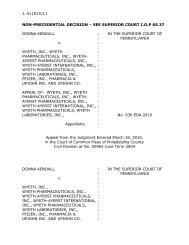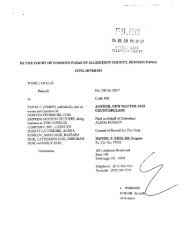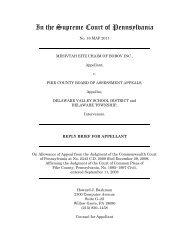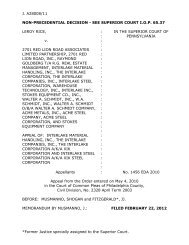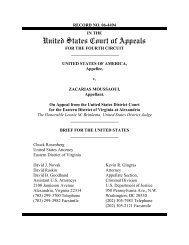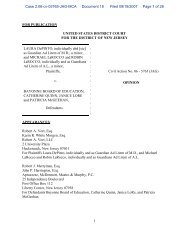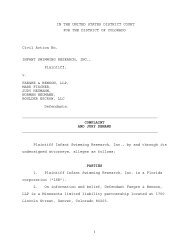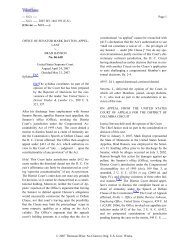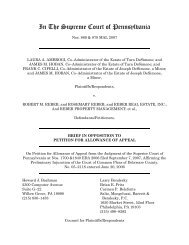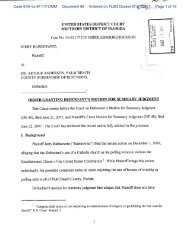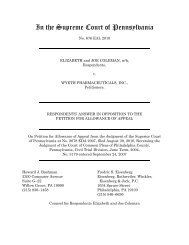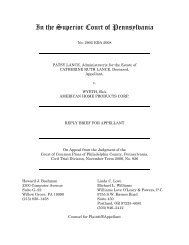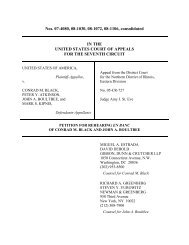Stone v. Bear, Stearns & Co., Inc. - How Appealing
Stone v. Bear, Stearns & Co., Inc. - How Appealing
Stone v. Bear, Stearns & Co., Inc. - How Appealing
You also want an ePaper? Increase the reach of your titles
YUMPU automatically turns print PDFs into web optimized ePapers that Google loves.
Case 2:11-cv-05118-LDD Document 22 Filed 05/29/12 Page 29 of 35<br />
7459781, at *6 n.5 (M.D. Fla. Dec. 20, 2011) (listing district court cases in which courts refused to<br />
vacate unanimous arbitration awards).<br />
F. <strong>Stone</strong> Has Waived His Section 10(a)(2), (a)(3), and (a)(4) Challenges to the Award<br />
As explained in detail above, we see no proper grounds for vacating the panel’s decision<br />
under the FAA’s “evident partiality” prong, § 10(a)(2); or “misbehavior” prong, § 10(a)(3), or<br />
“exceeding powers” prong, § 10(a)(4). But even assuming the circumstances warranted vacatur,<br />
<strong>Stone</strong> cannot rightfully contest the award based on his newly-discovered evidence because he failed<br />
to investigate the arbitrators as diligently before the arbitration as he did after he lost. Since all of<br />
<strong>Stone</strong>’s arguments for vacatur ultimately rest on the Dr. Marston-related information <strong>Stone</strong><br />
discovered after the panel ruled against him, <strong>Stone</strong> has waived his §§ 10(a)(2)-, (a)(3)-, and (a)(4)-<br />
based challenges to the adverse arbitration award.<br />
Arbitration retains its appeal as an alternative to litigation only if the parties involved can rely<br />
on the arbitrators’ decision. In other words, a reasonable person would surely hesitate to arbitrate a<br />
dispute in the first place knowing that he or she may very well have to litigate or re-arbitrate the same<br />
dispute again. Therefore, courts worry about disenchanted arbitration losers improperly seeking a<br />
second bite at the apple, which would undermine the finality of arbitration awards (and thus<br />
arbitration itself). The Seventh Circuit captured the essence of this concern in its Leatherby opinion:<br />
We do not want to encourage the losing party to every arbitration to conduct a<br />
background investigation of each of the arbitrators in an effort to uncover evidence<br />
of a former relationship with the adversary. This would only increase the cost and<br />
undermine the finality of arbitration, contrary to the purpose of the United States<br />
Arbitration Act of making arbitration a swift, inexpensive, and effective substitute<br />
for judicial dispute resolution.<br />
Leatherby, 714 F.2d at 683; see also <strong>Co</strong>mmonwealth <strong>Co</strong>atings, 393 U.S. at 151 (fearing that “a<br />
suspicious or disgruntled party [might] seize on [an arbitrator’s non-disclosure] as a pretext for<br />
invalidating the award.”) (White, J., concurring).<br />
29



